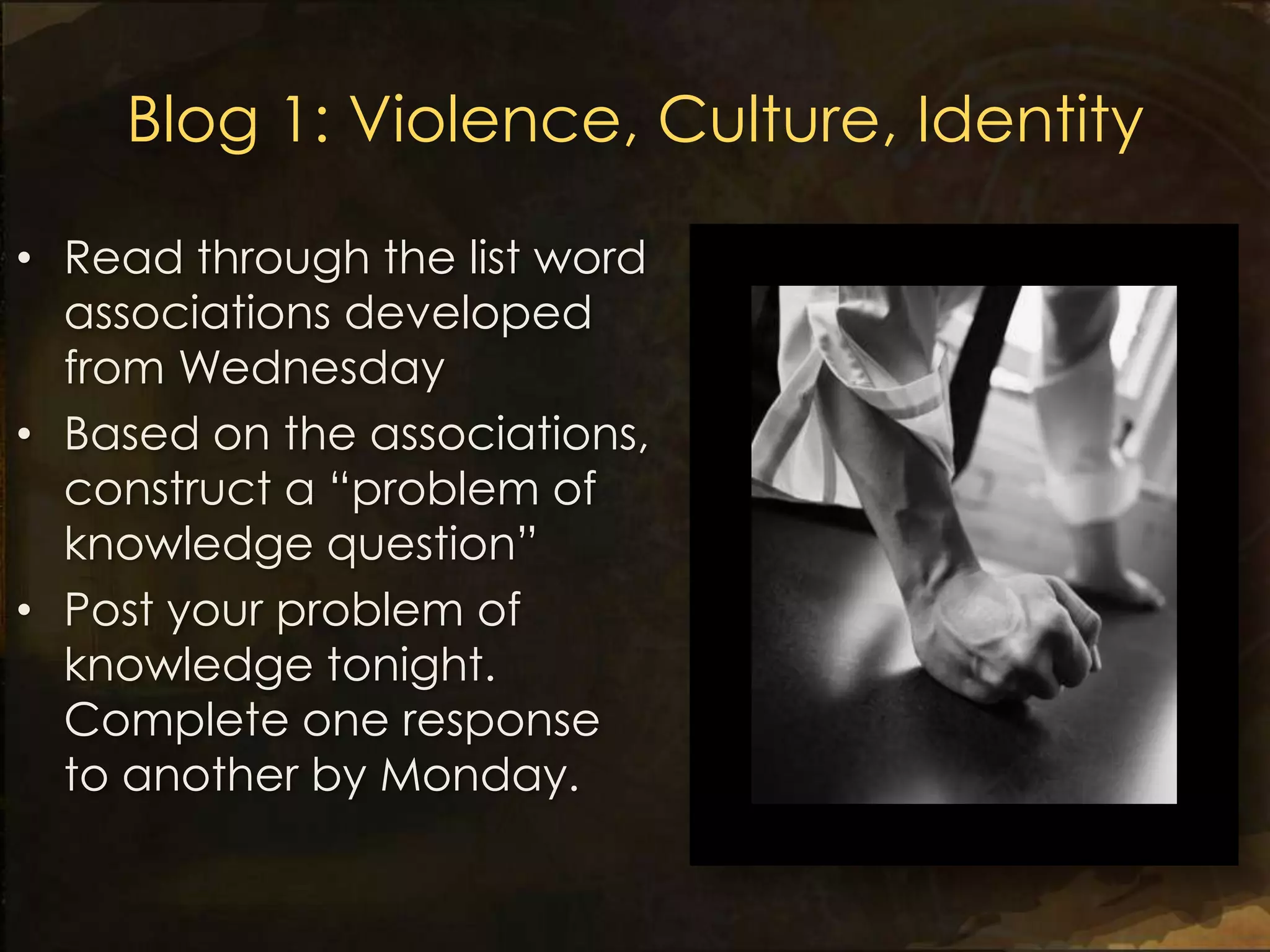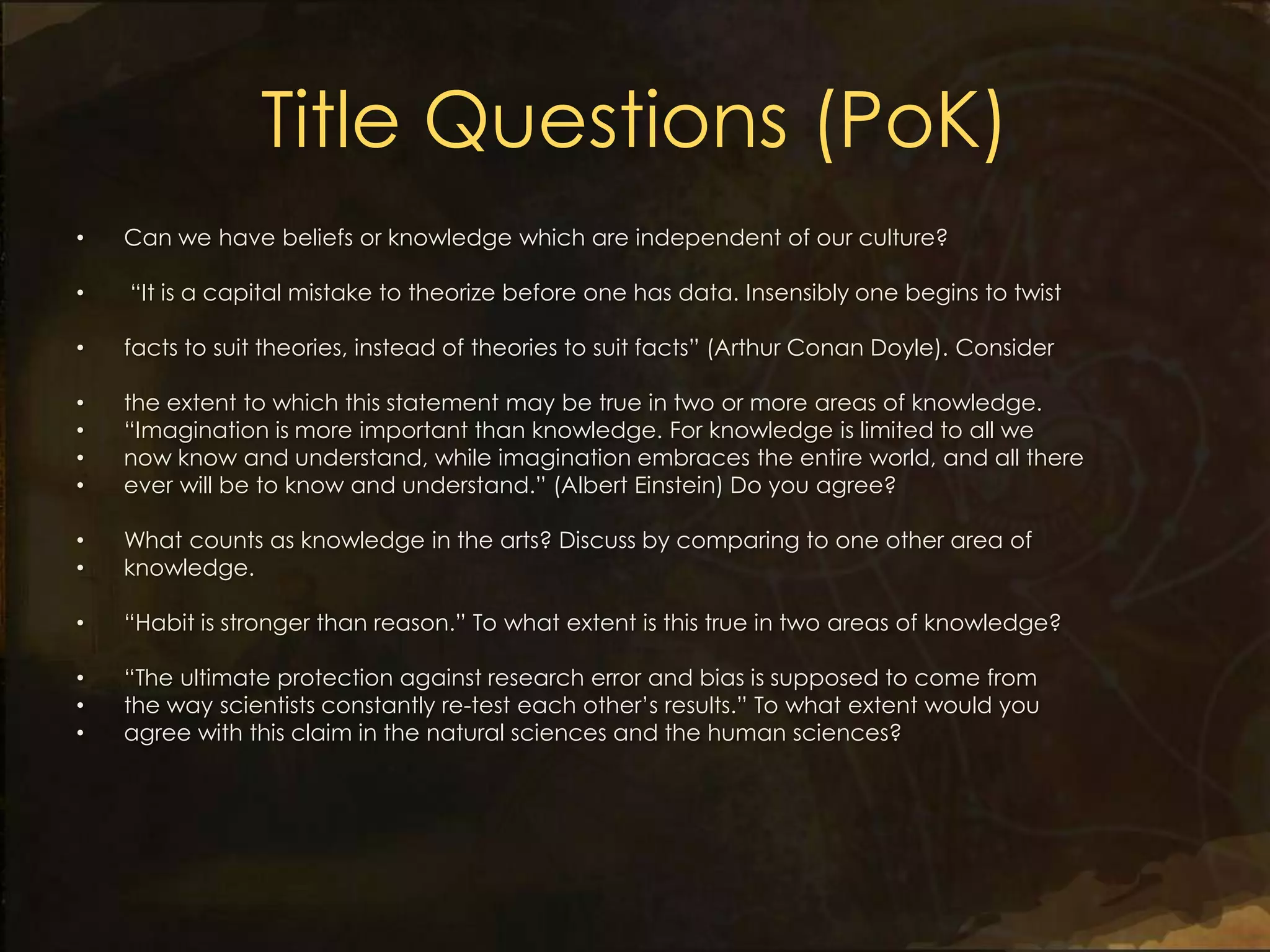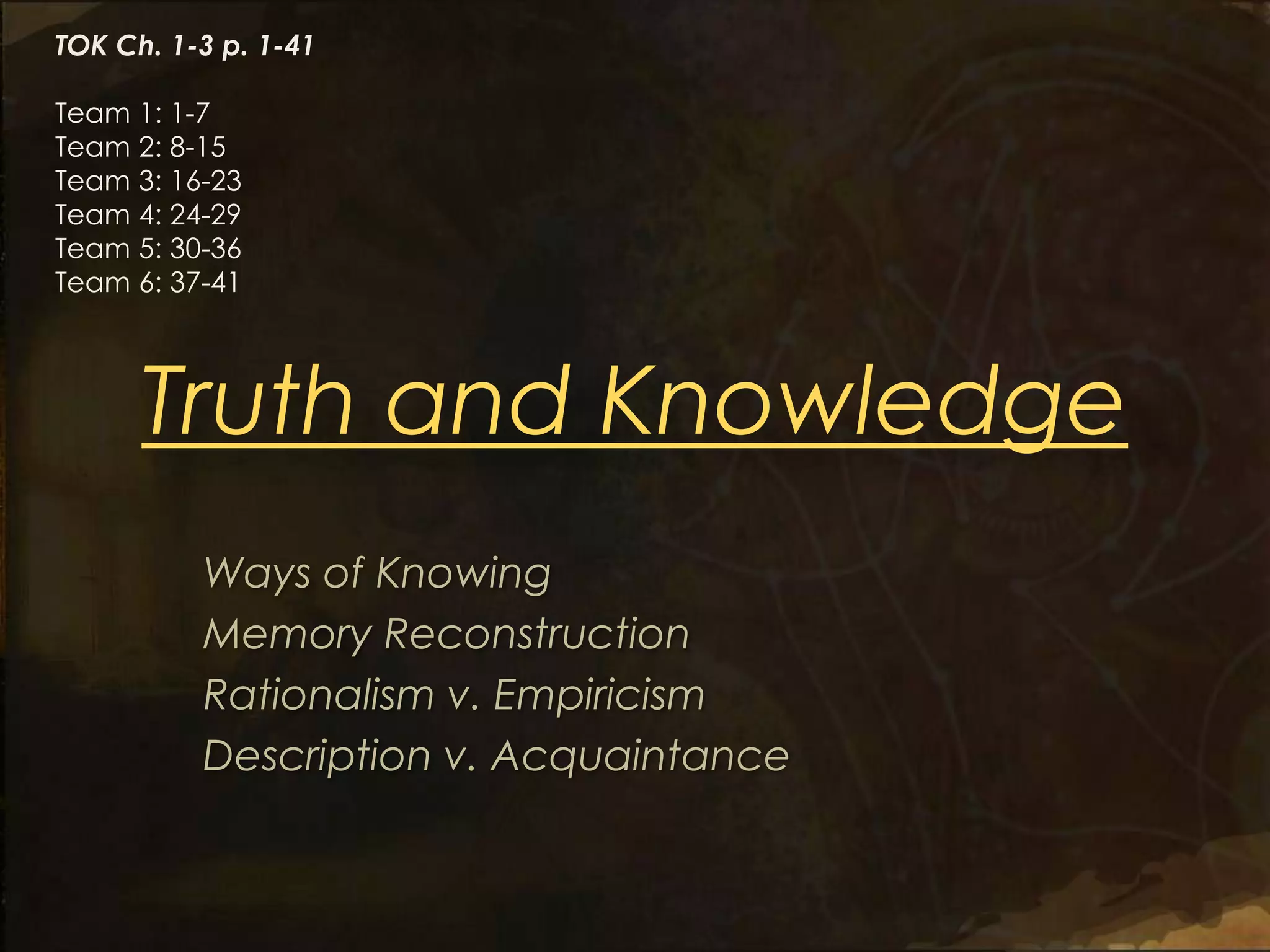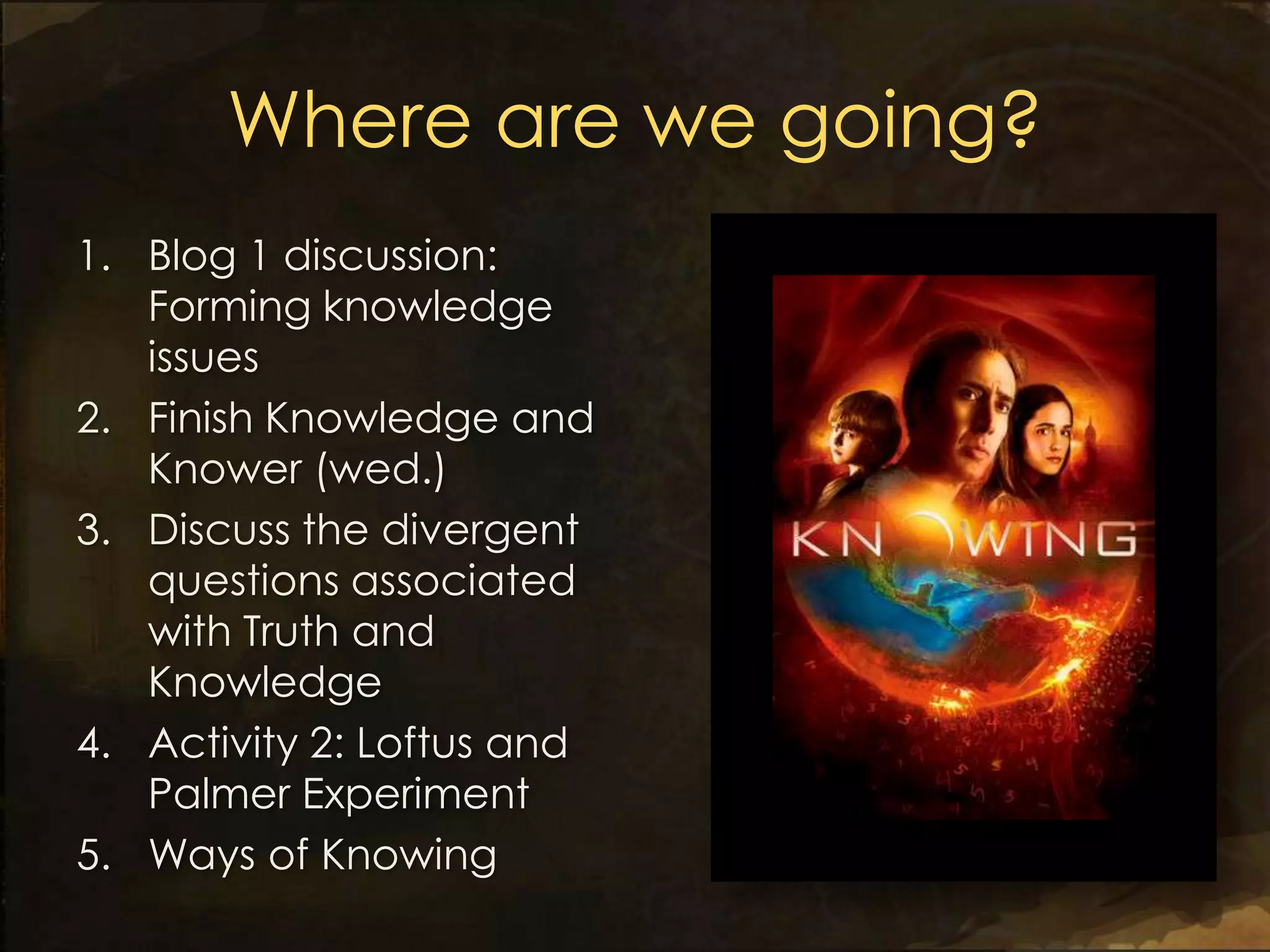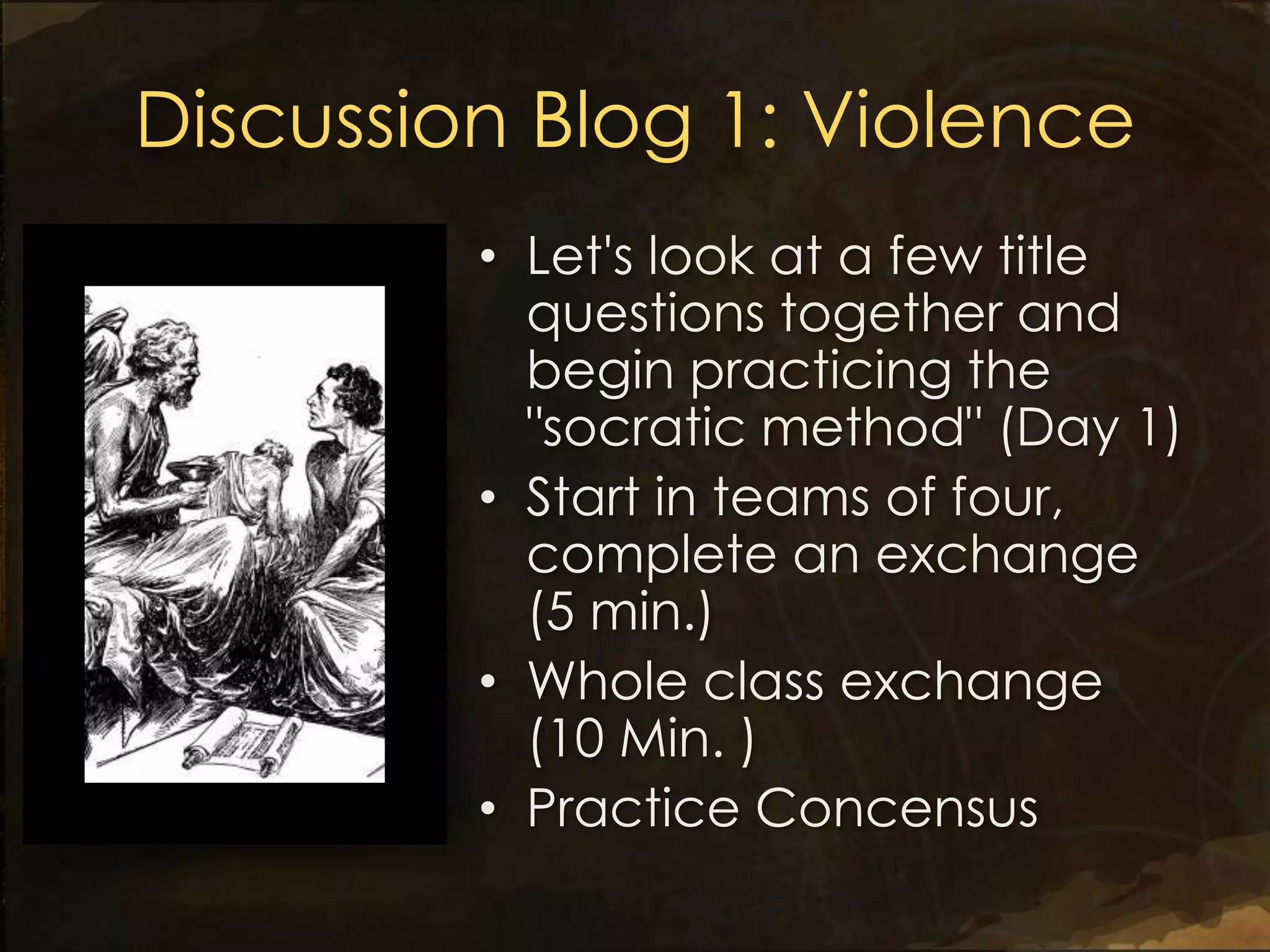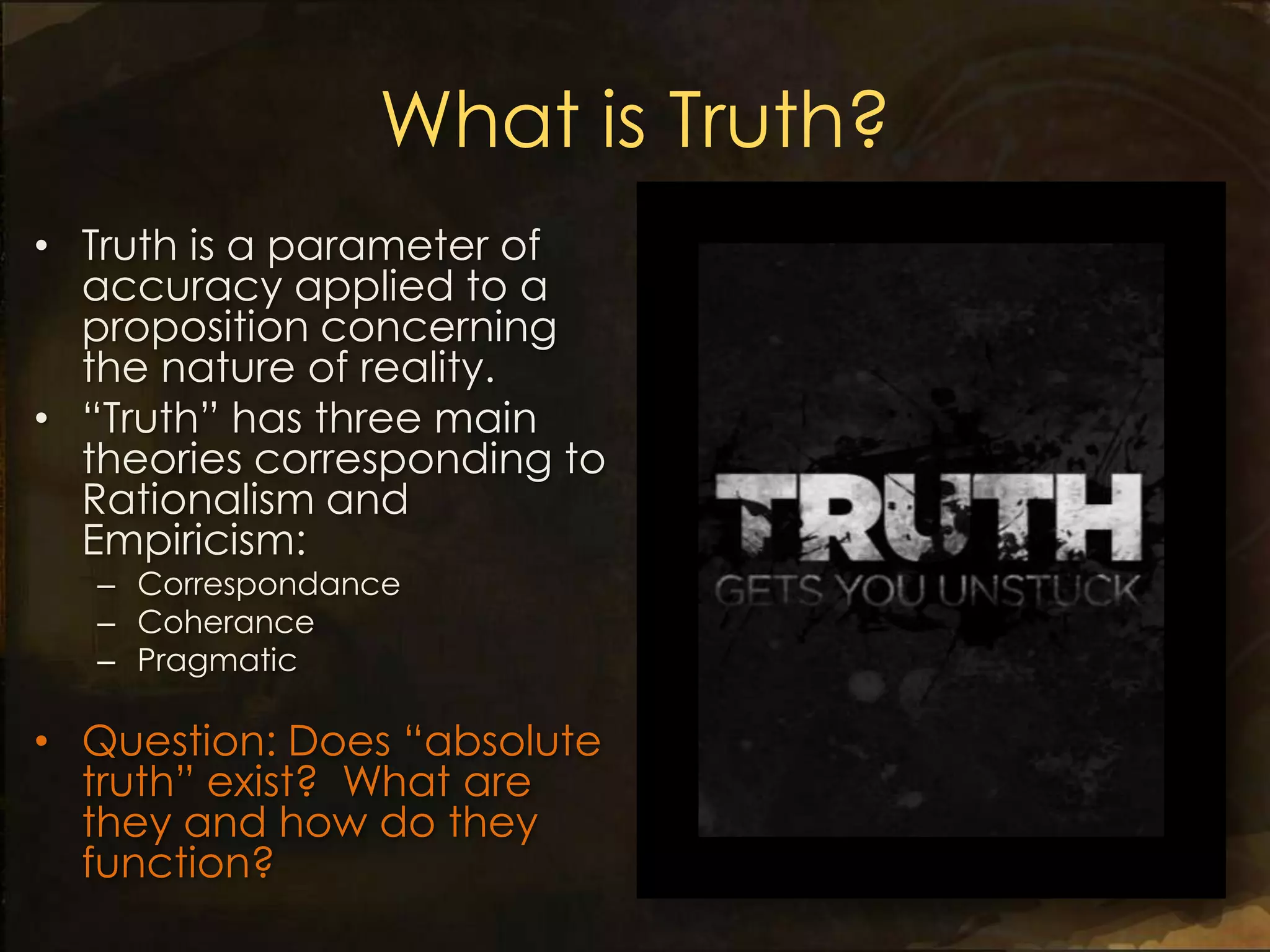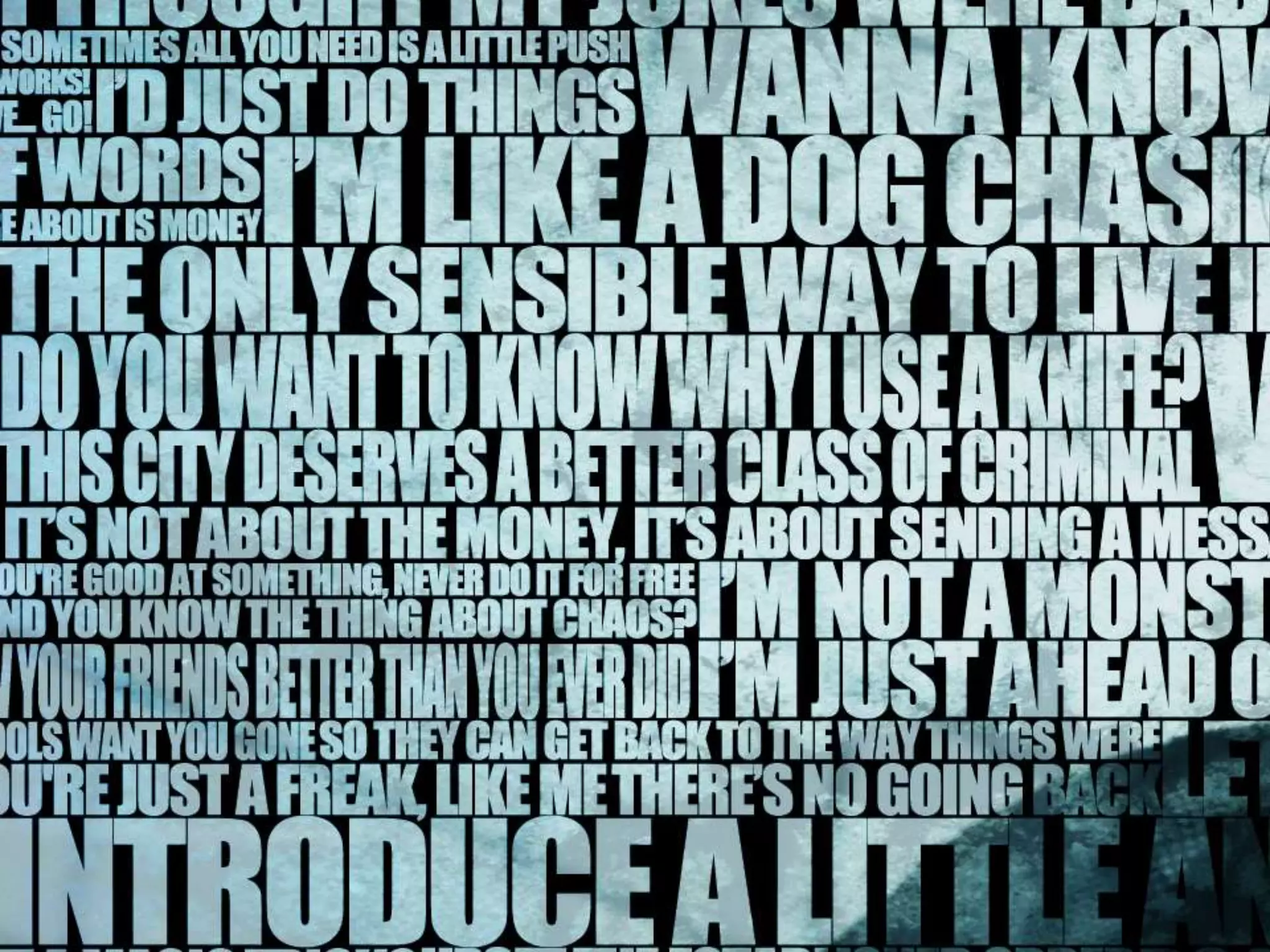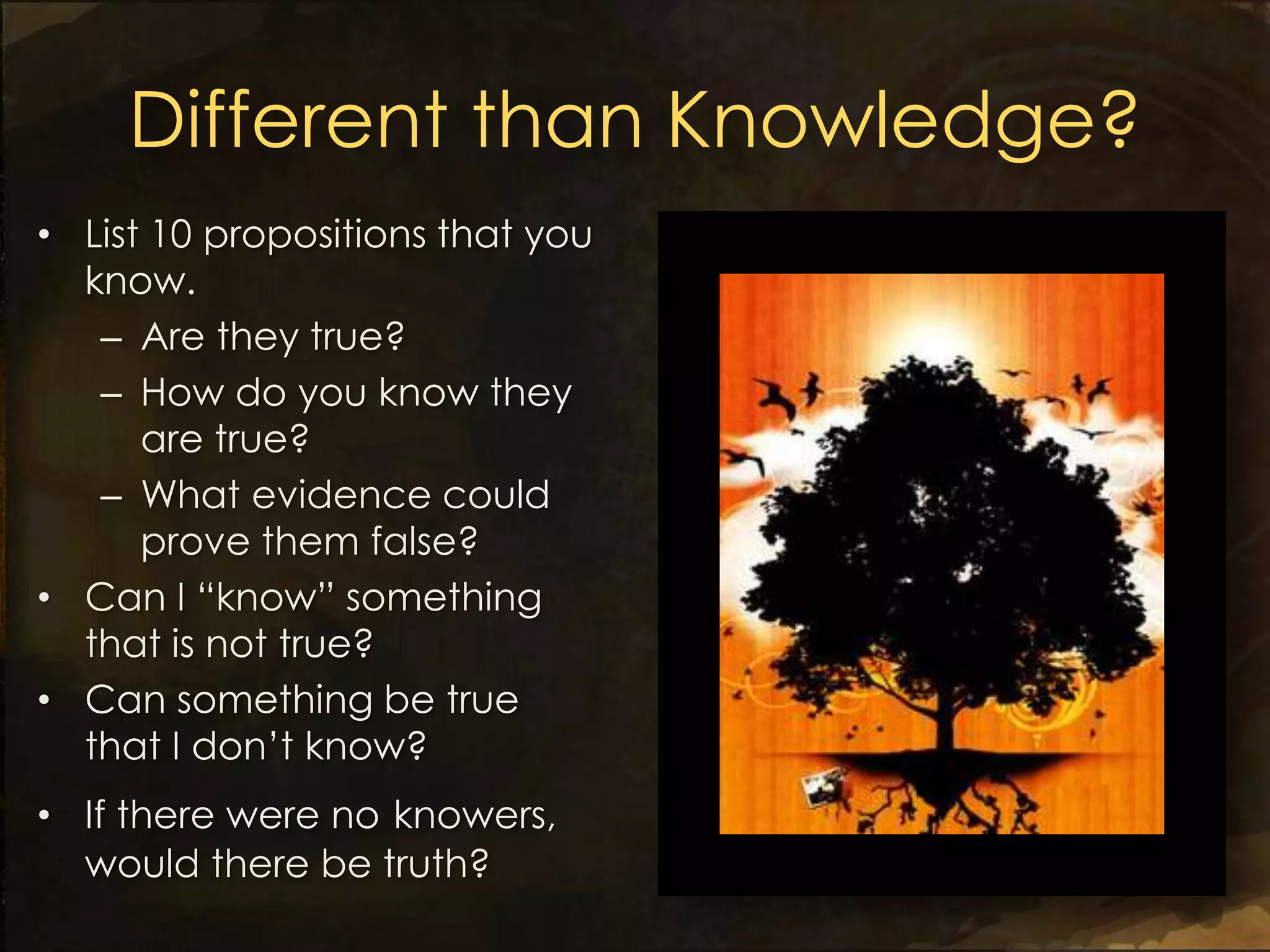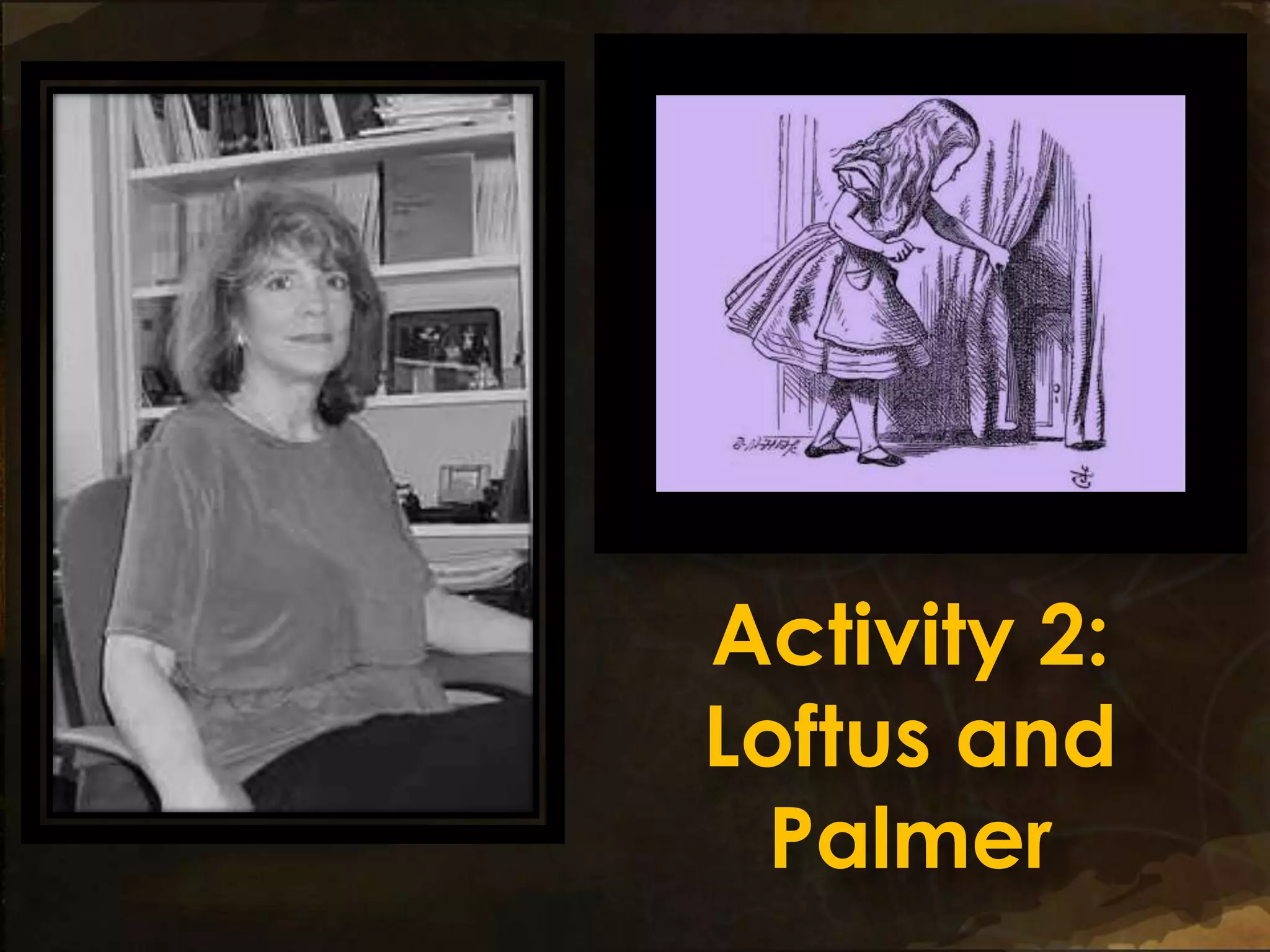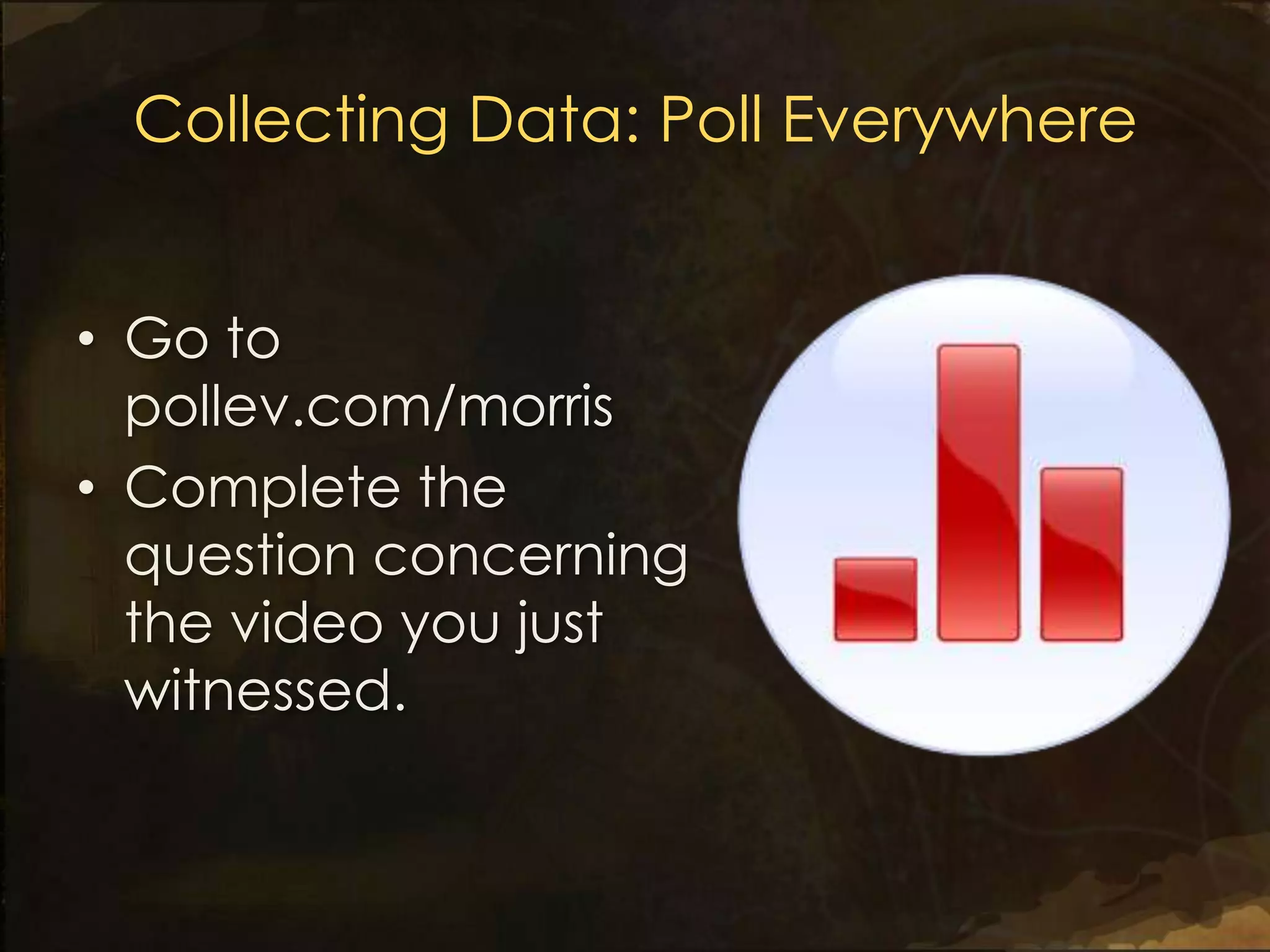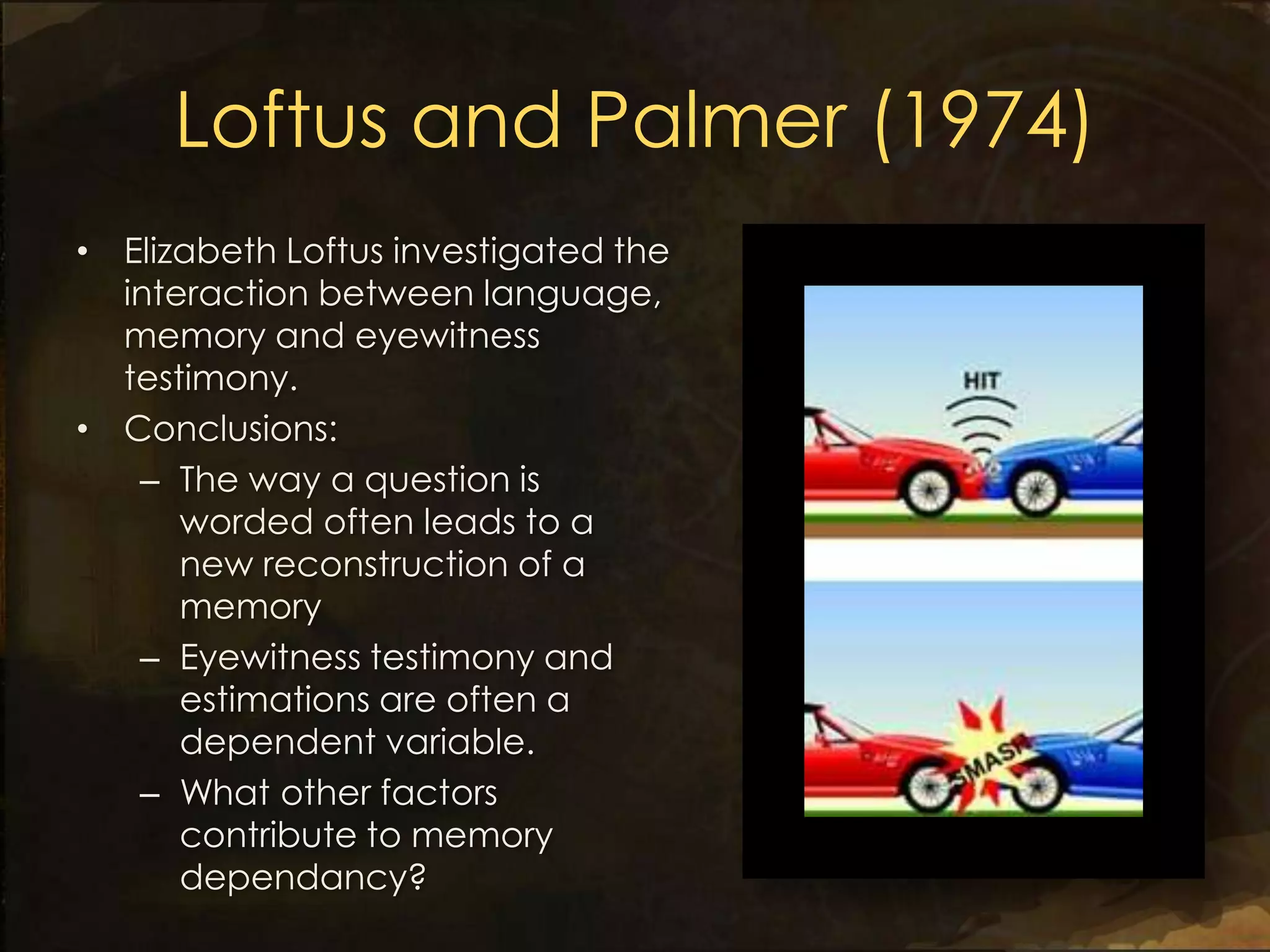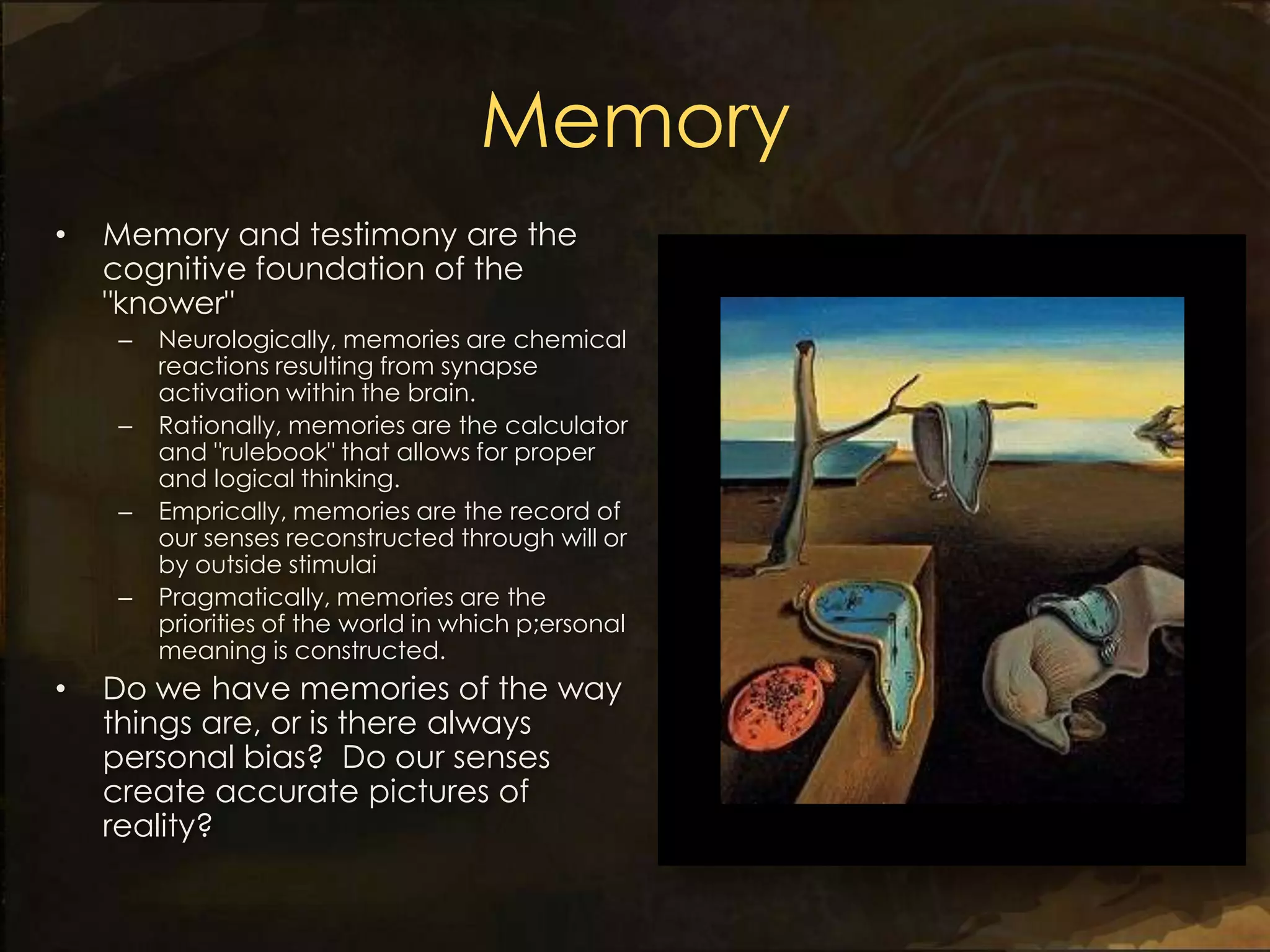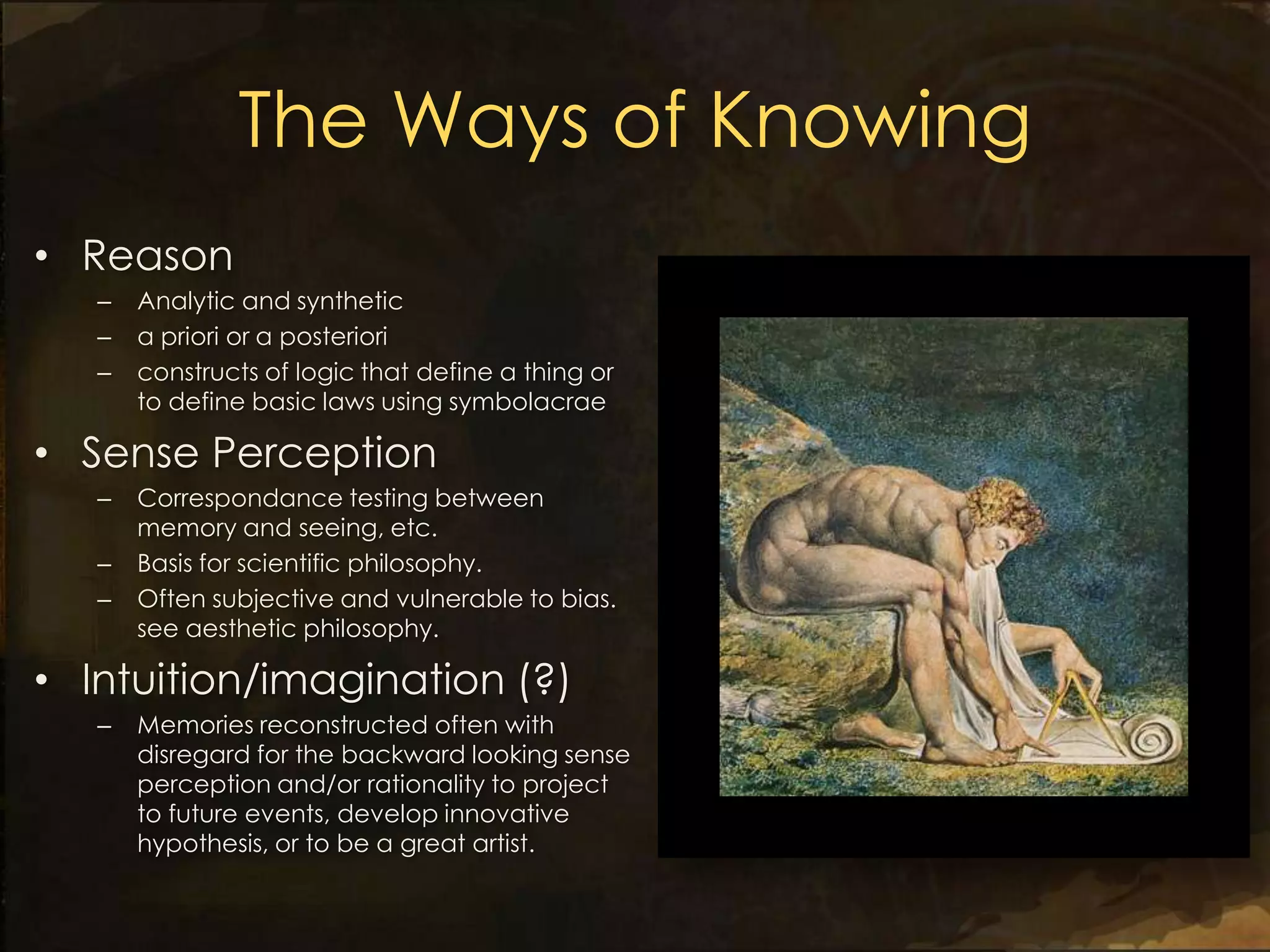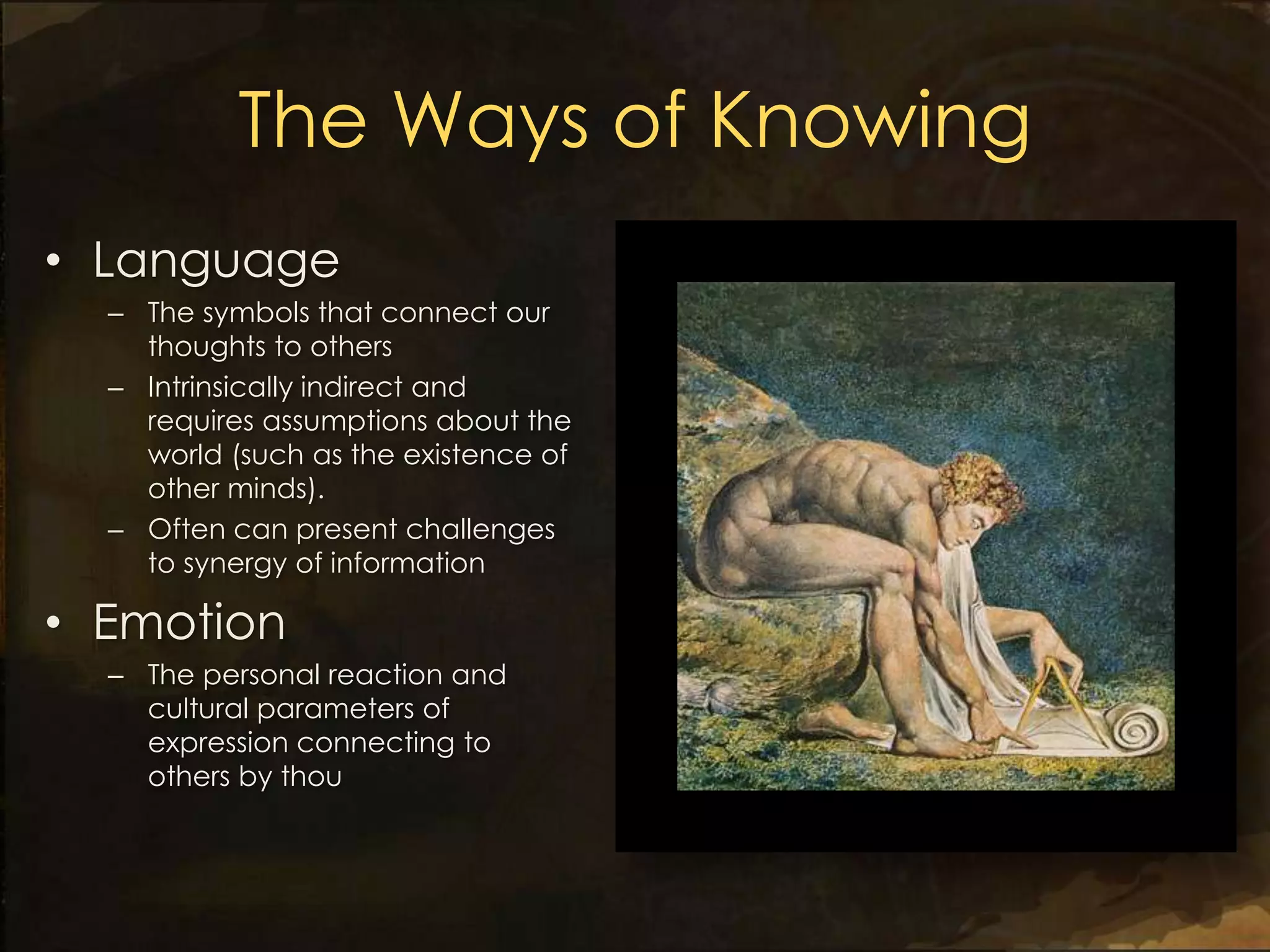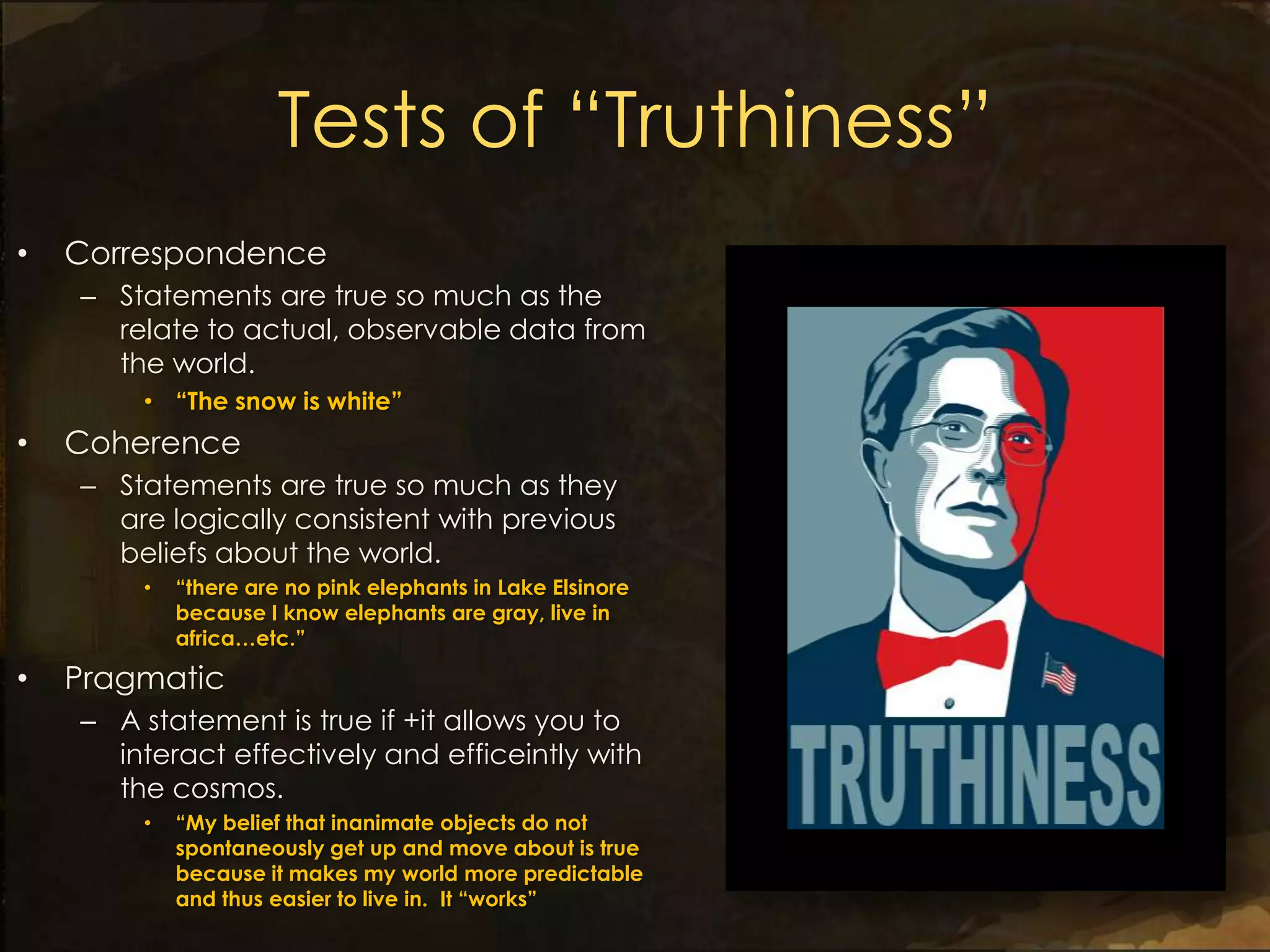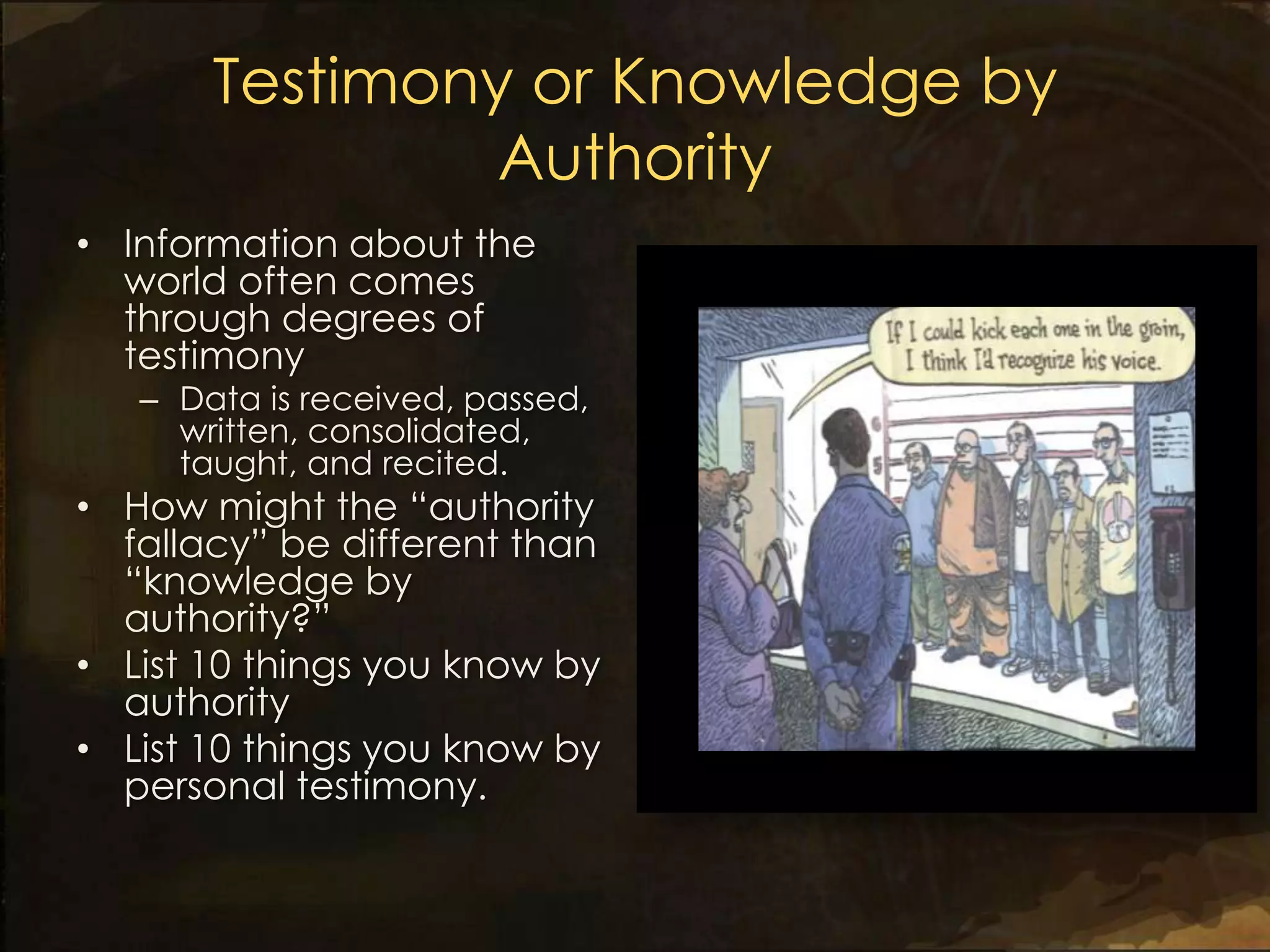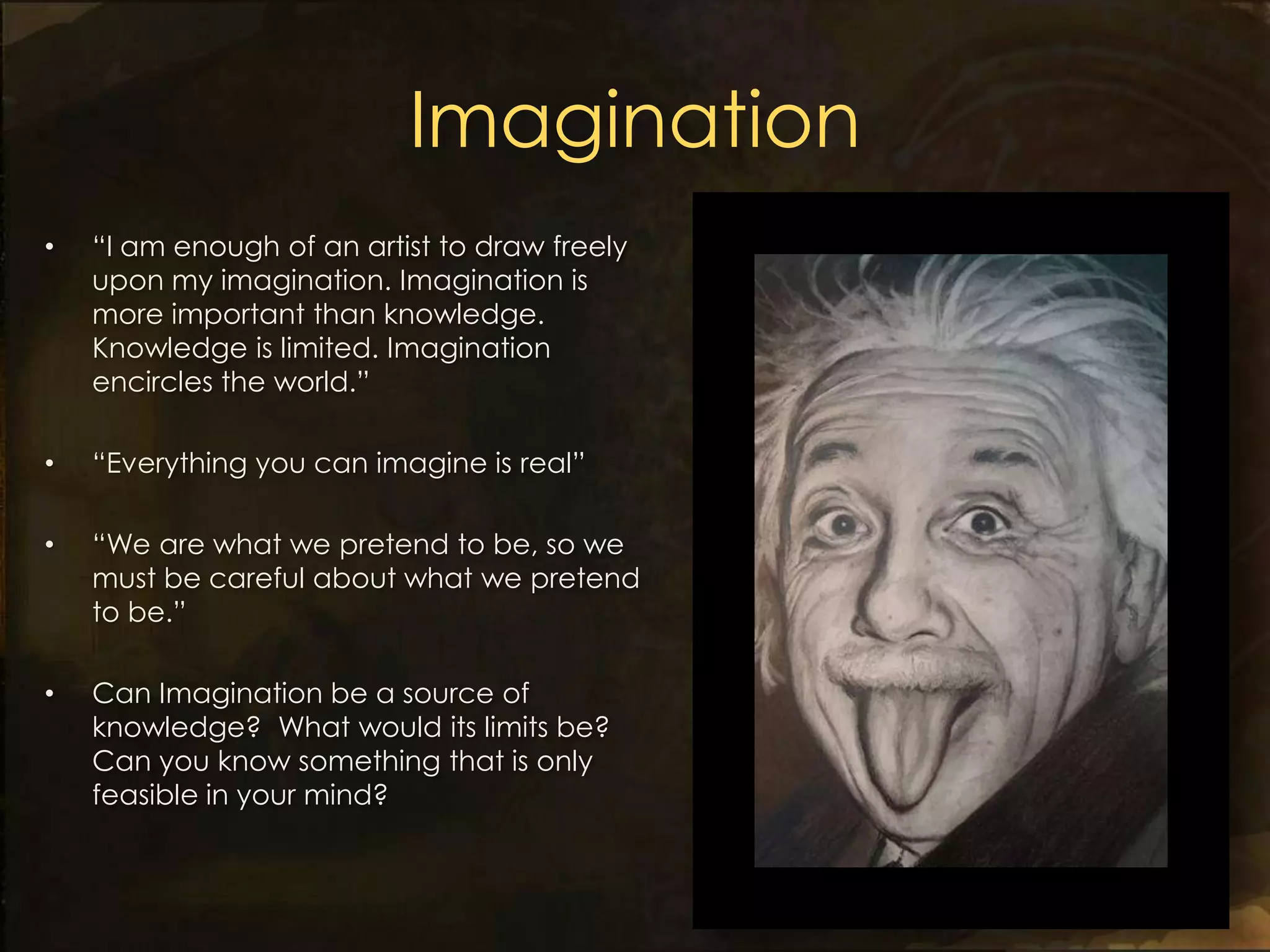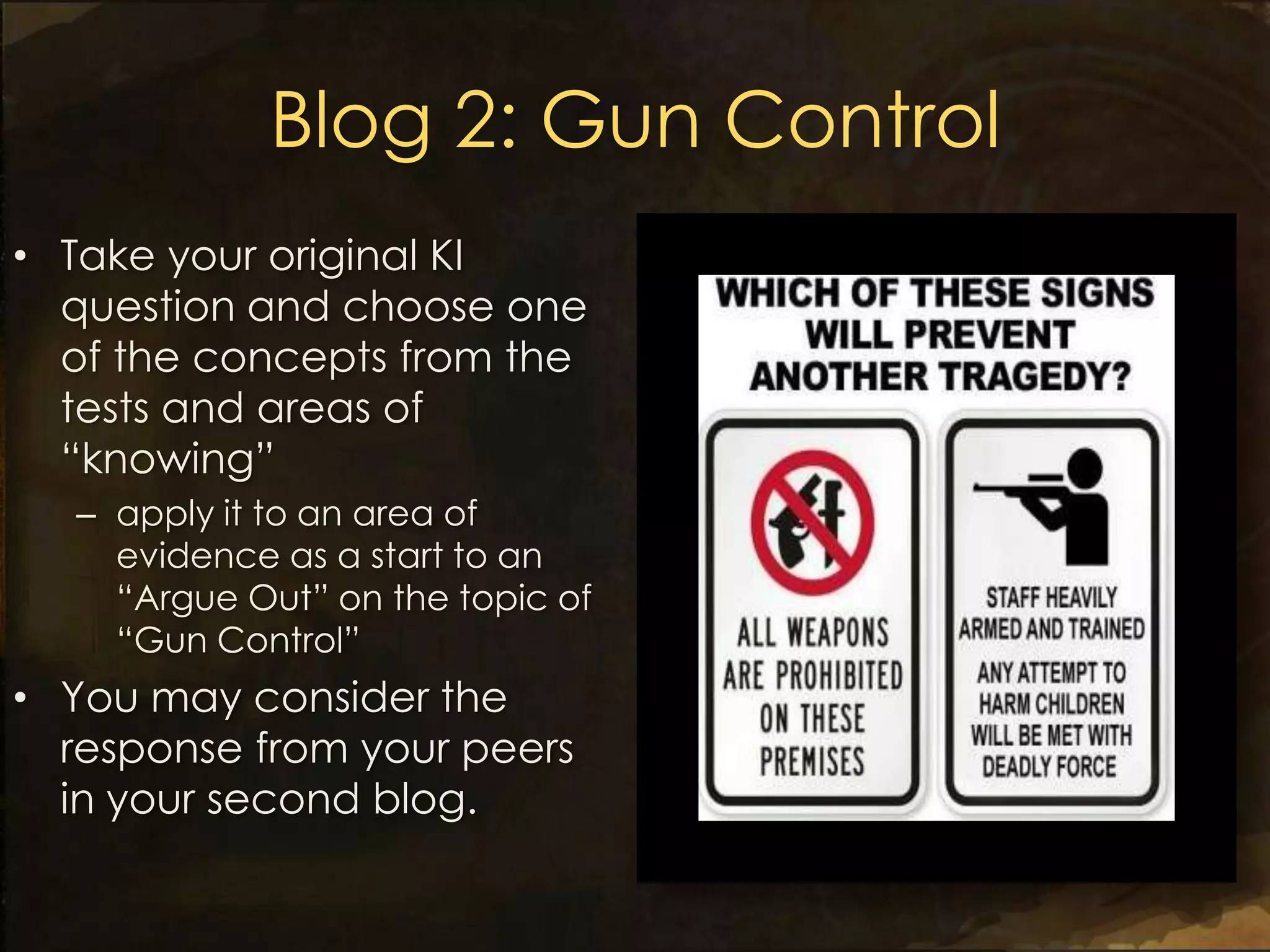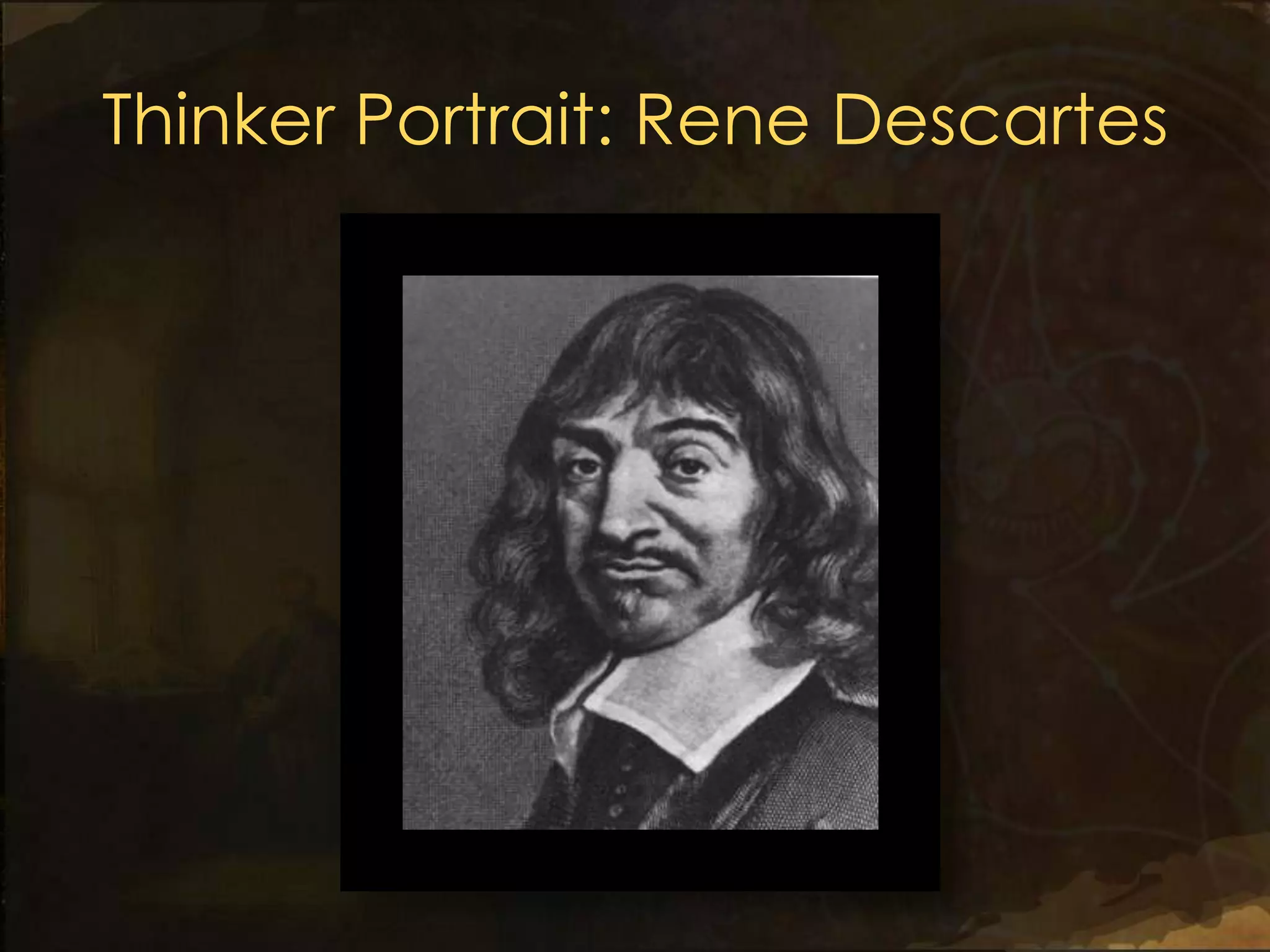This document discusses knowledge and truth. It presents different theories of truth, including correspondence theory, coherence theory, and pragmatic theory. It also distinguishes between knowledge and truth, asking if something can be known that is not true or true but not known. The document then discusses different ways of knowing, including reason, sense perception, intuition/imagination, language, emotion, testimony/authority, and imagination. It presents examples of applying different "tests of truthiness" like correspondence, coherence, and pragmatic to evaluate statements. Finally, it discusses using concepts from ways of knowing and tests of truth to apply to an issue like gun control in a blog response.
